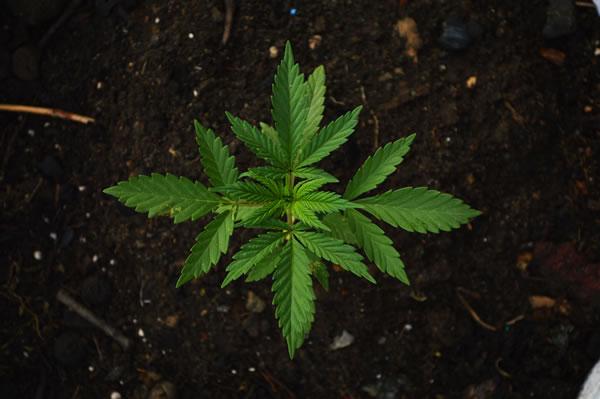Cannabis Pesticide Education
Best Management Practices for Cultivation Facilities
The Colorado Department of Agriculture has developed educational information to assist cannabis producers. This web page may be used for cannabis information, staying up to date on regulations, gather educational information and finding resources.
Laws and Regulations
- Link to e-CFR 40 CFR Part 170, the Code of Federal Regulations, which cover the Worker Protection Standards.
- Link to Colorado Department of Agriculture Pesticide use in Cannabis production web page.
- MED Statutes and Legislation.
Cannabis Materials
Facts and Pamphlets
- Concerning Pesticide Use and Cannabis
- Signal Words
- Minimum Risk Pesticide Label Fact Sheet
- Pesticide Rinsates brochure
Other Educational Materials
- Guide to Worker Safety and Health in the Marijuana Industry
- Best Management Practices - Pesticides and Fertilizers
- Ventilating and Cooling Greenhouses from National Greenhouse Manufacturers Association
- BioSafe Cannabis Cleanup & Water Treatment

FAQs
- What is the difference between Hemp and Marijuana?
-
Cannabis is an annual dioecious flowering herb. The term Cannabis encompasses both Hemp and Marijuana. The difference in the two is the selective breeding for the end product. Tetrahydrocannabinol, THC, is the psychoactive component in cannabis. Hemp is defined as having no more than 0.3% of delta-9 THC concentration on a dry-wweight basis, anything over 0.3 % delta-9 THC is considered marijuana.
- Who should get a Pesticide Applicators’ License?
-
Cannabis growers, since they are producing an agricultural crop, are considered private pesticide applicators. Private pesticide applicators are defined as; any person who uses or supervises the use of a pesticide for purposes of producing any agricultural commodity on property owned or leased by the applicator or the applicator’s employer.
Private pesticide applicators are only required to obtain a Private Applicator’s license issued through the Department if they are making Restricted Use Pesticide (RUP) applications in the course of producing their agricultural commodity. Since there are no RUP products available for use to the Cannabis industry, there is no requirement for Cannabis growers to license. However, you may still obtain your private applicator license, which can help you qualify as a trainer for workers and handlers for the Worker Protection Standard. - How do I get a Pesticide Applicators’ License?
-
All available dates for testing and how to obtain the license are on the CDA web page. Alternatively you can look at the Colorado Environmental Pesticide Education Program (CEPEP) page which can provide an overview of the examination and licensing process.
- Who is covered by the WPS?
-
The WPS requires owners and employers on agricultural establishments and commercial pesticide handling establishments to protect employees on farms, forests, nurseries, and greenhouses from occupational exposure to agricultural pesticides. The WPS protections cover two types of employees:
- Pesticide handlers: those who mix, load, or apply agricultural pesticides; clean or repair pesticide application equipment; or assist with the application of pesticides.
- Agricultural workers: those who perform tasks related to growing and harvesting plants on farms or in greenhouses and nurseries.
For more information about who is covered by the WPS and responsibilities of employers go to Who is covered by WPS.
- Where can I find information on the Worker Protection Standard ( WPS ) changes that are occurring in 2017?
-
The Environmental Protection Agency has created the How to Comply Manual that can answer most questions in an easy-to-read format.
- Where can I find other training materials on the Worker Protection Standard ( WPS )?
-
The Environmental Protection Agency (EPA) has a new cooperative agreement between the EPA's Office of Pesticide Programs and University of California Davis Extension, in collaboration with Oregon State University, to develop Worker Protection Standard (WPS) training materials. The agreement established the Pesticide Educational Resources Collaborative (PERC). PERC is developing new WPS training materials and information that are available for free.
Colorado State University’s Colorado Environmental Pesticide Education Program (CEPEP) program is part of the Department of Bioagricultural Sciences and Pest Management in the College of Agriculture at Colorado State University (CSU). They also have many WPS related resources. The Environmental Protection Agency can also provide WPS resource materials and information on the WPS Rule itself. - Who regulates fertilizers?
-
Fertilizer products are regulated by the Colorado Department of Agriculture's fertilizer program. This program regulates fertilizers, soil conditioners, and plant amendments sold in Colorado For agricultural and home use. Product labels and advertisements are monitored for false or misleading claims.
- What pesticides can I use on Cannabis?
-
To determine what pesticides products are allowed for use on Cannabis in Colorado, refer to the allowed pesticides list which can be found here.
- How do I obtain, read and interpret Safety Data Sheets ( SDS )?
-
There are several resources, a few are listed here: Crop Data Management Systems, National Pesticide Information Center: Label and SDS Databases.